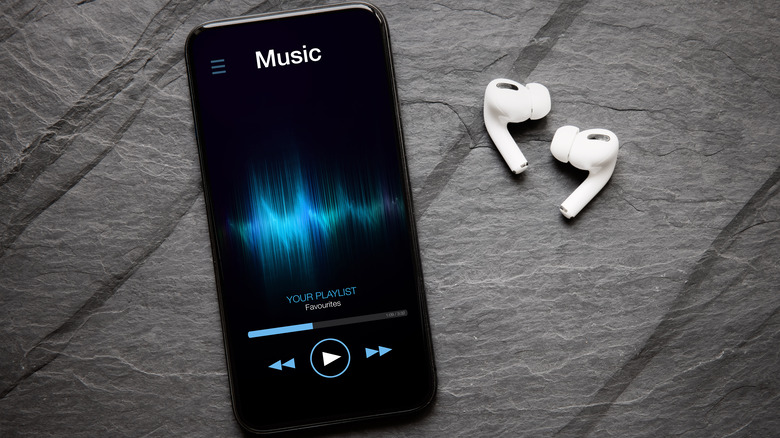How Do Binaural Beats Help To Alleviate Anxiety?
All of the sudden, you start to get a bad feeling. Dread, worry, and psychological concerns begin to fill your body with tension and your mind with uncomfortable thoughts. Your heart may even begin to race as a tight sensation overtakes your stomach. According to MedicalNewsToday, these could be the symptoms of an anxiety attack. Anxiety attacks can stem from a particular problem — like the Sunday Scaries before work — or have no discernable trigger. According to the Anxiety and Depression Association of America, anxiety disorders affect an estimated 40 million adults, or 19.1% of the population aged 18 and older. Shockingly, less than 37% of people who suffer from anxiety seek treatment.
There are many different ways to treat anxiety. Two common forms of treatment include medications, like serotonin reuptake inhibitors (SSRIs), and therapies like cognitive behavioral therapy, reports MedicalNewsToday. Some people find success managing their anxiety with techniques like meditation or yoga, and there are also sound wave therapies. Here's everything you need to know about a type of sound wave therapy that may help you deal with anxiety while in the moment.
The benefits of sound wave therapy
A binaural beat is an auditory illusion that is created when two tones play at slightly different frequencies in each of your ears, usually via headphones (via Psychology Today). Healthline reports that there are a few caveats: the two frequencies have to be lower than 1000 Hz, and they cannot be more than 30 Hz apart. Let's say you listen to a tone of 220 Hz in the right ear, and 210 Hz in the left. In addition to the aforementioned tones, you would also hear a 10 Hz binaural beat, or the difference between the two tones. The totality of this experience is the binaural beat.
According to Psychology Today, binaural beats have different frequencies that correspond to different brain waves. For example, Delta waves (0.5-4 Hz) relate to sleep, while Alpha waves (8-12 Hz) relate to a meditative state akin to relaxing with your eyes shut. The idea is that binaural beats help shift brain states with the difference between the two frequencies. Following this logic, a binaural beat in the alpha frequency range (8-12 Hz) may decrease anxiety. Some studies have found evidence to support the idea that the alpha frequency range can help to reduce anxiety. A 2021 study published in the journal Medicina Oral, Patologia Oral, Cirugia Bucal found that preoperative dental patients who listened to a binaural beat of 10 Hz for 10 minutes before a procedure experienced a "significant decrease" in self-reported measures of anxiety.


